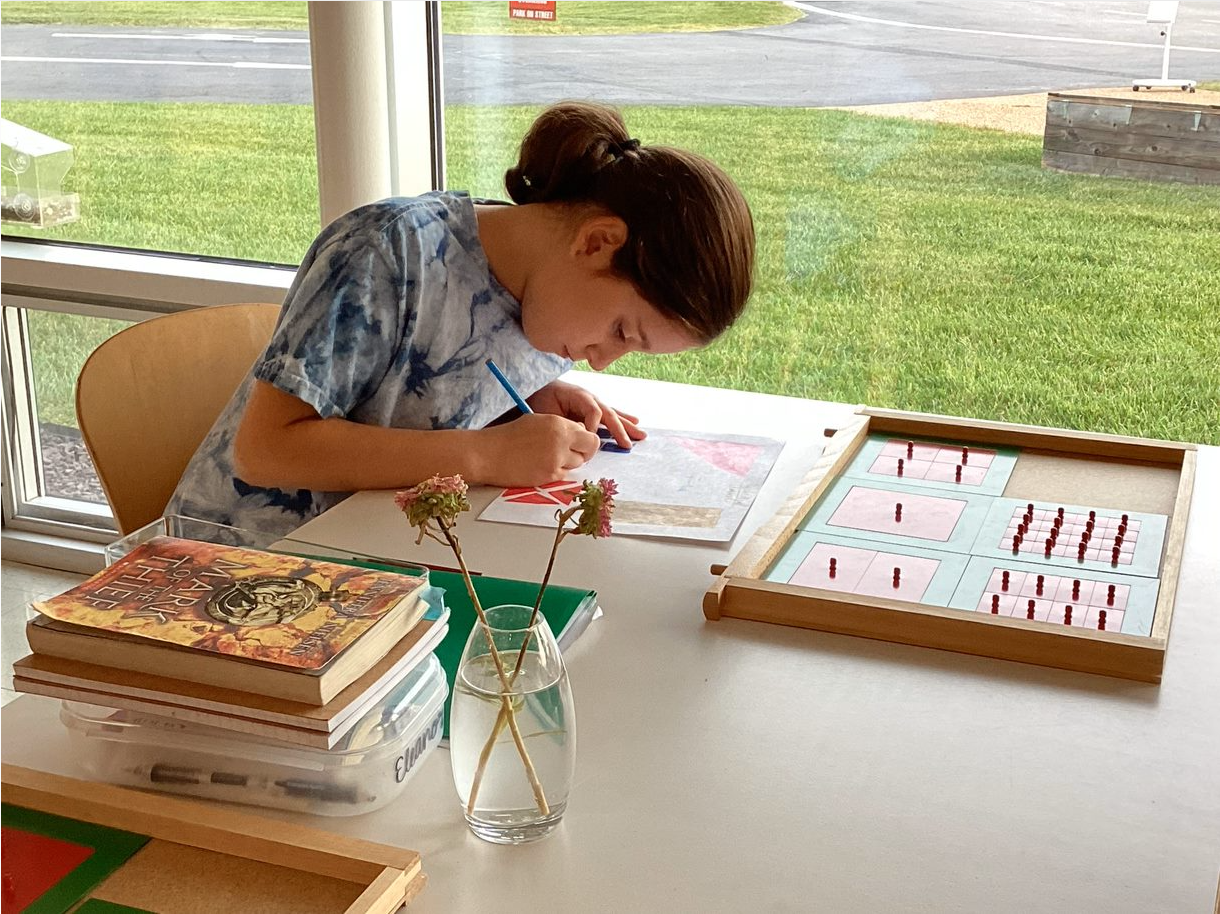There is a wide range of typical development. Often when a child is developing rapidly in one area, another area will lag temporarily. At school, we look for lasting patterns.
Learning Disorder = serious trouble with a specific academic skill or subject. A gap between what is developmentally expected and what a child is able to do.
In a traditional school environment, learning disorders will not typically be noticed until the age of “formal schooling,” (typically over age six). In a Montessori environment, we may notice potential differences earlier, for a few reasons:
- Authentic Montessori education is a brain-based curriculum
- Children are exposed to (developmentally appropriate) academic work at an earlier age
- Our guides are developmental experts
Signs of possible challenges:
Repeatedly avoiding certain types of work or becoming upset/throwing a tantrum when attempting those tasks may mean that the child finds the work too hard.
Fine Motor: difficulty holding crayon/pencil, using utensils, developing two and three finger grip.
- Gross Motor: coordination—frequent tripping, falling, running into things (more than expected for a child at that age).
- Math: difficulty counting, recognizing object order, grasping concepts such as addition.
- Reading: difficulty recognizing sounds and/or rhymes.
- Language: delays in expressive and/or receptive language (difficulty processing directions/words; challenges making self understood/expressing needs).
- Attention/Focus: Inability to engage with the Montessori materials.
- Social problems: difficulty recognizing social cues; frequent negative interactions with other children; defiance in the face of kind redirection by adults.
- Inability to sit still: Human beings need to move, and movement is incorporated into each child’s day. There are a few times when children are invited to sit and eat lunch, listen to a story, sing along in circle time or complete a lesson. Some children find this challenging.
- Keeping hands to one’s self: Understanding and respecting physical boundaries.
- Taking things that don’t belong to them.
- Lack of eye contact.
- Ongoing difficulties with transitions.
- Sleep disturbance, restlessness, muscle tension, fatigue, irritability, changes in: appetite; behavior; school performance.
When we first notice an atypical sign in a child, we will:
- Observe
- Repeat lessons and/or adapt approach as appropriate
- Redirect behavior
- Offer Grace and Courtesy lessons
- Brainstorm with other teachers, trainers and administration—asking others to observe
- Reach out to parents to find out if something is going on at home and perhaps suggest shifts in home routine that could help
If a pattern persists over time, we will reach out to parents and suggest evaluation and additional support.
Early intervention can be hugely beneficial to a child’s development and self-esteem (not an exhaustive list—these are just a few of the interventions/evaluations we regularly recommend)
- Hearing/vision screening
- Play Therapy
- Occupational Therapy
- Speech Therapy
- Social Skills groups
- Behavioral therapy
- Psychotherapy
- Executive function therapy
- Parent coaching individualized to a particular child’s/family’s needs.
- Screening for developmental issues and/or neurodivergence (ADD, sensory or other processing disorders, autism spectrum disorder).
- Full psychoeducational evaluation to determine how a child learns best.
Your child’s teacher & Ms. Kim have a list of trusted resources if you need support navigating screening and therapy for your child.
Note Well: Do not underestimate the impact of electronics/screen time as well as inadequate sleep and poor nutrition on children’s ability to focus, learn and regulate their bodies and emotions! Talk to your child’s teacher and/or email the office to get more information on these important topics.





